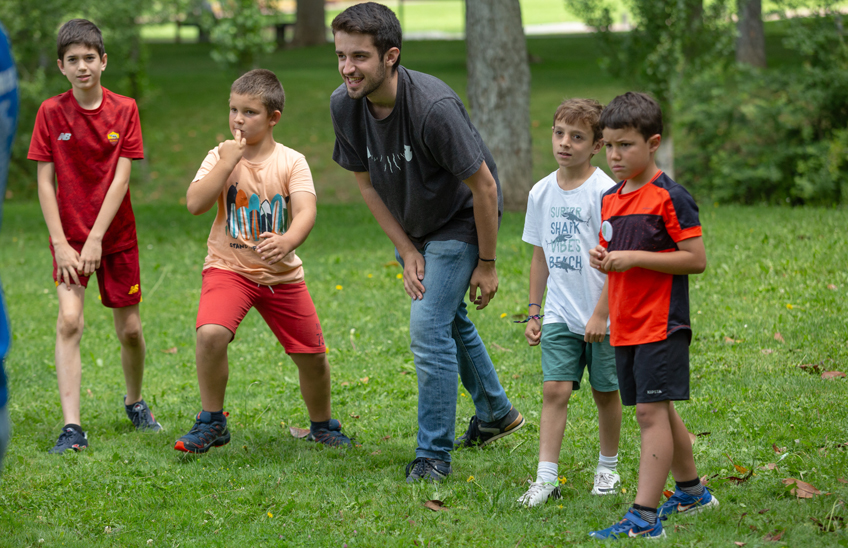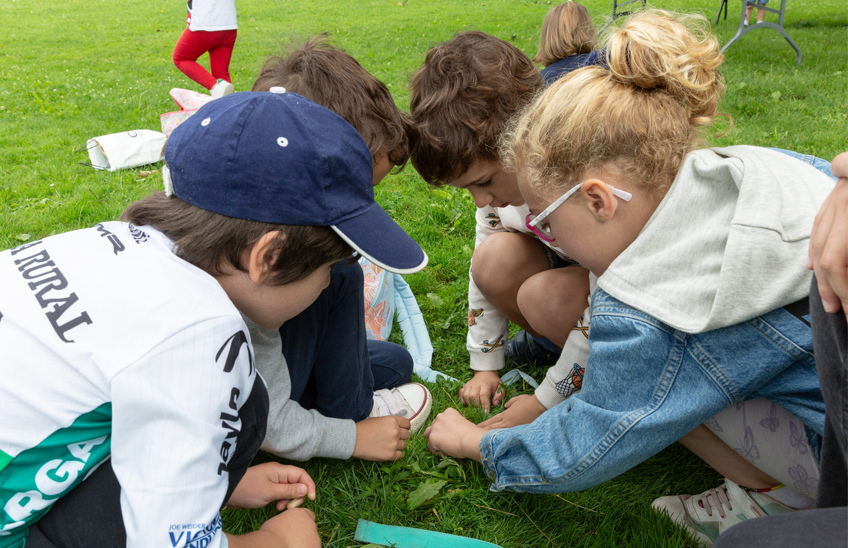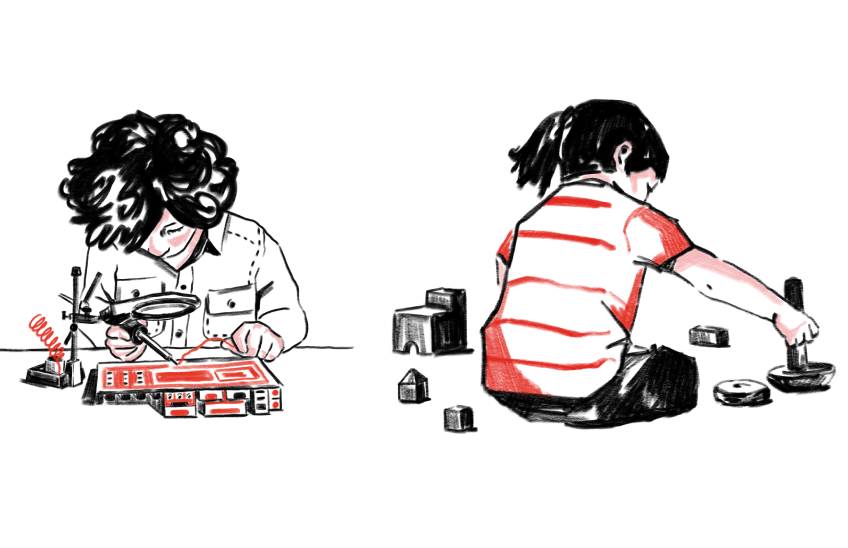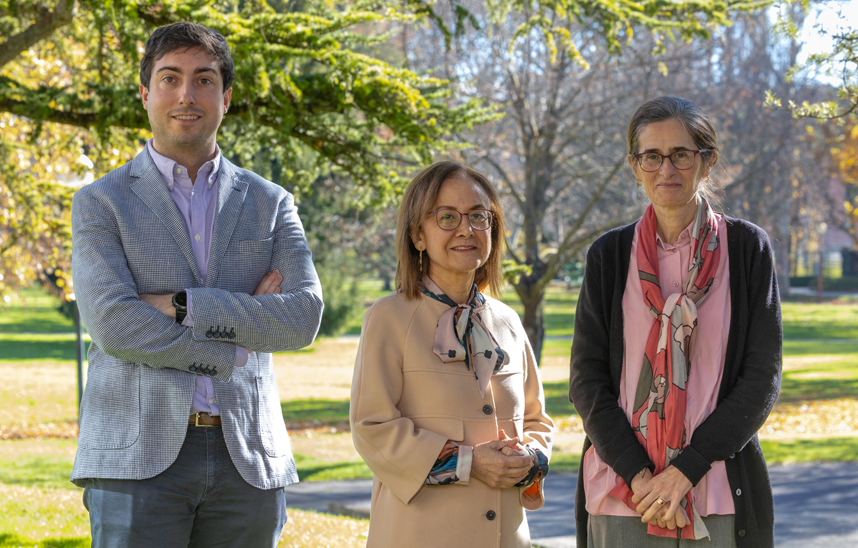What is it like to be professor in Science?
Two students from School of Education and Psychology participate in the V edition of the "Ciencieando" camp.

02 | 10 | 2023
Paula Cristóbal, from Degree en Magisterio en Education Infantil, and Enrique Miranda, from Degree en Pedagogía y Magisterio en Education Primaria, experienced firsthand what it is like to be professor of Science, thanks to the 5th edition of the camp organized by the Science Museum of the University of Navarra.
These camps were aimed at children from Education Infants, and had as goal that children learn and enjoy science. In this interview, the alumni of the School of Education and Psychology tell us about their experience.
How did you learn about the camp and what motivated you to participate in it?
Paula Cristóbal (PC): In the middle of the previous school year, the director of development at School, Marie-Anne Reynell, told me about these camps and they caught my attention. What motivated me the most was to know that they had included groups of Children's Excursion. As I am studying to be a teacher at Education , it seems to me that it is important to transmit a taste for science from the time they are young.
Enrique Miranda (EM): I found out about this camp thanks to two friends of mine who put me on contact with Marta Revuelta, from the Science Museum.

What was your role?
PC: From the first day, each monitor was at position with a group of 5-6 children, with whom the activities proposed by the Museum were carried out in small groups. To do this, we had to take the children from one place to another at campus, explain the activities to them, and participate with them. In addition, during the day, we monitors worked as a team to see how the tasks were distributed, how we prepared and explained the activity...
EM: Actually we all had a common goal as monitors, we distributed the tasks and activities as we saw fit. There were days when some had some tasks and the following days were others, in that sense the functioning was quite organic.
What have you learned from this experience and what do you take away from it?
PC: Throughout the degree program I had heard that children had an interest in science, but it wasn't until this moment that I realized it. Children are eager to learn everything at all times, you can't let your guard down. They ask thousands of questions that they then reflect on and draw conclusions from. So you have to be there to help them develop good reflections.
EM: Thanks to these camps I have been able to develop clear teaching skills, I think the most B of them has been to manage children in specific moments, with discipline and through different games or dynamics. I have also learned about the delicate balance between closeness and authority in the relationship professor - student.
How do you think your training has helped you? What have you learned during the degree program that has helped you especially during these days?
PC: Everything has helped me training. From the one-on-one with the children to the explanations I made about a butterfly or a ladybug.
The learning from degree program that has helped me the most has been allowing me to experiment. At first, I was a little scared because the kids were exploring everything and picking up bugs from everywhere, but when they came to teach me and explain things they saw I realized that the best way to learn about insects is to see insects.
EM: As far as my training is concerned, I think the biggest gain has been to add one more experience with children, also, the camp environment is a very busy environment and leads the monitors to complicated situations and limits in many moments, so the management of these factors has been vital and an important gain in my training professor .


